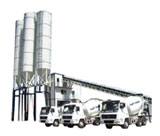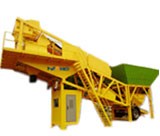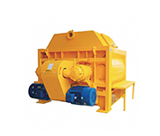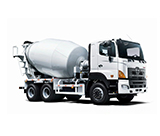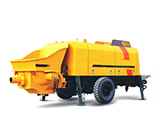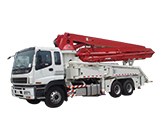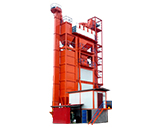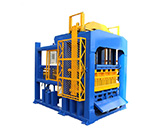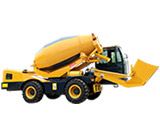What Is Dry Batch Concrete Batching Plant?
2025.11.12
A dry batch concrete batching plant is a type of equipment used to produce concrete, characterized by its dry mixing process. In this type of concrete batching plant, all raw materials (such as cement, aggregates, fly ash, admixtures, etc.) are mixed in a dry state according to specified proportions. Water is then added and mixed to form concrete before use, unlike wet concrete batching plants which add large amounts of water during the mixing process. The core features of dry mix concrete batching plants include high efficiency and energy saving, stable quality, environmental friendliness and health benefits, strong adaptability, significant economic benefits, and a long shelf life.


The main advantages of dry batch concrete batching plants include:
1. High efficiency and energy saving: automated production, doubled efficiency
Dry concrete batching plants utilize automated control systems to achieve continuous production, with efficiency far exceeding that of traditional on-site mixing methods. Their efficiency can reach 500%-600% of traditional methods, significantly shortening the construction period. For example, in large-scale infrastructure construction, dry mix concrete batching plants can quickly supply concrete to meet the demands of high-intensity construction.
2. Stable quality: precise proportioning, uniform, mixing
Through advanced mixing technology and a precise batching system, dry concrete batching plants ensure stable concrete quality. The laboratory can adjust the production formula and add different additives to create various types of commercial mortar to meet diverse construction needs. Simultaneously, automated production reduces human error, ensuring consistent concrete performance.
3. Environmentally friendly and healthy: low dust, low noise
During production, the dry mix concrete batching plant operates within a fully enclosed system, employing high-efficiency dust collectors or mist spray technology to significantly reduce dust pollution. Furthermore, the pneumatic exhaust system and unloading equipment are equipped with silencers, effectively reducing noise, protecting operator health, and meeting green construction requirements.
4. High Adaptability: multi-scenario applications
Dry mix concrete plants can produce various types of mortar, suitable for construction, decoration, repair, and other projects. Its flexibility is reflected in formula adjustments; the laboratory can quickly switch mortar types according to project needs, meeting the requirements of different construction scenarios.
5. Significant economic benefits: cost reduction and efficiency improvement
- Reduced loss: Dry-mixed mortar uses well-graded, small-particle sand, reducing material loss during transportation and use while ensuring quality, thus lowering project costs.
- Easy to use: Simply add water and mix on-site; operation is labor-saving, time-saving, and improves construction efficiency.
- Long shelf life: Dry-mixed mortar has a long shelf life, without time restrictions, facilitating project scheduling and inventory management.
6. Long shelf life: flexible scheduling
Dry mixed mortar has a much longer shelf life than wet mixed concrete, allowing for advance production and storage, and flexible allocation according to project progress. This characteristic is particularly prominent in projects with tight schedules or complex construction conditions, avoiding construction delays caused by untimely concrete supply.
Comparative advantages with wet mix concrete batching plants:
- Transportation distance:
Concrete produced by wet mix concrete plants needs to be used within a short period, otherwise, moisture loss can easily affect quality. Dry mix concrete batching plants solve long-distance transportation problems through dry material transportation, ensuring stable concrete performance.
- Investment cost:
Dry mix concrete batching plants have lower initial investment, eliminating the need to build large-scale ready-mixed concrete plants. Production can be achieved with simple auxiliary equipment, making them suitable for scenarios with limited funds or dispersed projects.
- Construction flexibility:
Dry batch concrete batching plants can meet on-site mixing needs and are suitable for special construction occasions, such as remote areas or projects with inconvenient transportation.

